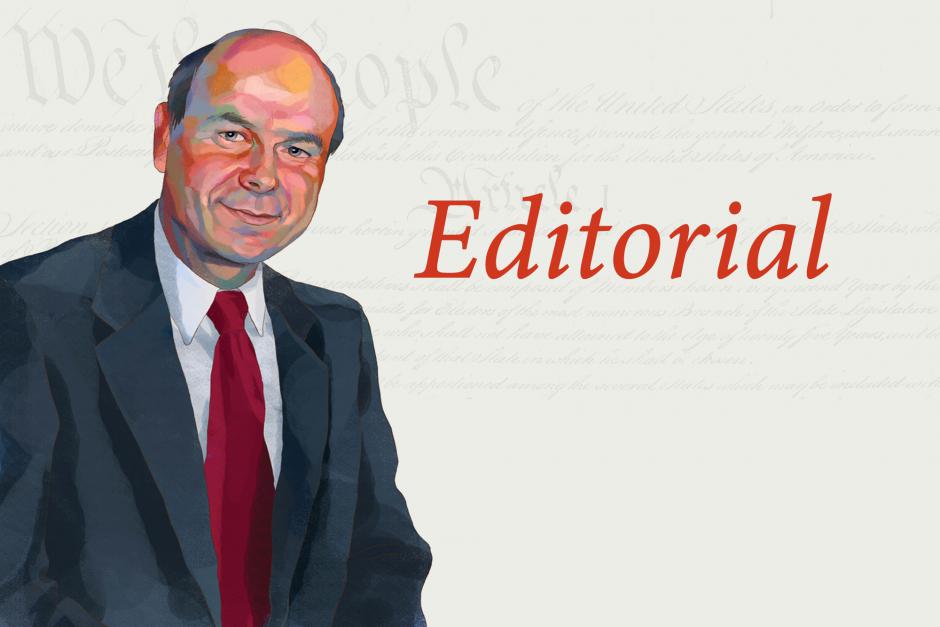May Our Tribe Increase
Lincoln E. Steed July/August 2016People of a certain age, and I include myself, still have problems with body tattoos and various piercings. People of a certain provenance, and I include myself, remember seeing this sort of thing on newsreel footage of cannibals in New Guinea. To see it now makes me wonder again about the real meaning of the phenomenon.
The Yakuza, or Gokud, of Japan form a crime brotherhood that dates back to the seventeenth century. Their body tattoos are prolific and important in signaling their special status. In many ways they are defined by these “tribal” markers. However neolithic the group’s origins, their present identity remains.
Maybe, just maybe, the rising Western habit of tattooing and piercing is an attempt at creating an identity. It is especially apparent in the young, the emerging generation, the often-thought- independent, self-sufficient breed; but maybe a new tribe hungering for acceptance. And if that acceptance means rejecting old norms, so be it.
It is worth remembering that a sense of rootlessness and a yearning for radical community fed the anarchism that helped create World War I and the revanchism that enabled World War II. It surely is at play in the yearning to make America great again. But what will be the body markings to define this present trend!
Next year marks the 500th anniversary of Luther’s reformation. It seems to me that the patina of memory for the Reformation, while considerably blurred by the ecumenism of the late twentieth century, remains mostly a thin awareness of a theological challenge to the old order. It was much more.
The context of the Reformation was radical social change. The rise of the mercantile class threatened the hegemony of the hereditary ruling class. Technological change, most particularly the printing press, increased learning and communication and accelerated social change. The Roman Catholic Church had been a co-guarantor of social norms for an entire Christendom—with the Reformation more local, often nationalist, identities emerged. Wars resulted. Kingdoms rose and fell. Religious identity, more than ever, drove conflicts, whether the existential defense of Europe against Islam or the Protestant-against- Catholic wars that shaped a continent and spilled over into the rivalries of the New World.
My gut feeling is that we are there again.
Whether the internet provides real knowledge is open to debate. Not debatable is its proven ability to mobilize groups with “information” quickly. It is not bound by concepts of nation states and knows nothing of the Treaty of Westphalia. It knows nothing of indulgences but sees religion as little more than identity politics. In other words, just as Luther’s protest spawned the Peasant’s Rebellion, so today’s secular Europeans and Americans are ready to act on religious nativism against perceived threats.
Globalism is trendy today, but its real power may prove to be less a formal ruling order than a rallying cry to change the old order. It is not just ISIS radicals chanting “the end of Sykes-Picot” on the border between Syria and Iraq—it is England yearning to separate from Europe, it is Confederate flags down south and the prospect of border walls rising magically like the dream of Kublai Khan.
Fifty years ago the post-Reformation Christian community initiated the perestroika and glasnost of ecumenism. Curiously, while its vision of syncretism did not quite materialize, it made religion a direct political player again, both in Europe with a revitalized papal power and in the United States with the rise of the Religious Right, or the optimistically titled Moral Majority.
Five hundred years ago the Reformation ostensibly began with the catalyst of the Indulgence scandal (by the way St. Peter’s Cathedral is the singular result of that fund-raising effort). The other major factor was the paranoia at the implacable Islamic attacks on Europe.
Today the analogue is the perceived dual threat to “Christendom” of declining moral values (read same-sex issues) and the immigration/terrorism dynamic (it can be interpreted as a global Islamic challenge).
Something is about to happen. As it was 500 years ago, religion is a central motivator, even though the elements are much broader. A radical sense of community removed from nationalism, and old religious identity is about to emerge.
We cannot quite know where it will end. History offers modeling clues, but no absolutes. Biblical prophecy hints at it in the books of Revelation and Daniel, but is most plain at the point the prediction actually occurs.
But, to go back to where I began, the tribal markers may be more than an affectation of the young. In the absence of the old -isms, the discreditation of the old despotisms, in the aftermath of the effective discreditation of captitalism to solve the world’s ills, in the devolution of representative democracy to a curious hybrid of mob rule and a type of fascism, we are, by my lights, being thrust into a new tribalism in which group identity is all-important. Ethnic markers still play their part, of course, but given the people movements of late, it is more likely that religio-political markers will define the tribe. And when dealing with cannibals and headhunters, can we expect that such subtleties as independent conviction and a separation of church and state will interest them?
Article Author: Lincoln E. Steed
Lincoln E. Steed is the editor of Liberty magazine, a 200,000 circulation religious liberty journal which is distributed to political leaders, judiciary, lawyers and other thought leaders in North America. He is additionally the host of the weekly 3ABN television show "The Liberty Insider," and the radio program "Lifequest Liberty."
